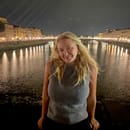“We are all in the gutter, but some of us are looking at the stars.” – Oscar Wilde
Content warning: This story contains brief mentions of self-harm and addiction
Ignorance is bliss. I’ve always hated that phrase—not just for its truth, but for its cruelty. It mocks those of us who see too much, who feel too deeply. Ignorance is salvation. Ignorance is armor. And I have none of it. I am raw, a nerve exposed, and the world presses against me like salt in an open wound. I see it all, yet I can’t look away.
I see a world unraveling. Not in a dramatic, apocalyptic crescendo, but in the slow, insidious way of decay—like rot beneath the floorboards. The skies hang heavy, choked with smoke and the weight of greed. Progress marches forward with a blindfold on, crushing what it cannot use, leaving behind ash where forests once stood. The oceans rise as if to reclaim what we’ve stolen, devouring coastlines and futures alike.
And yet, we carry on. We scroll, we shop, we sleep—pretending there’s still time, pretending the end hasn’t already begun. But I know. I know the truth that gnaws at the edges of everything; there is no time. Not for this planet. Not for us.
What kind of world is this to bring children into? What kind of future can I promise them—a life written in the language of drought and wildfires, in the syntax of floods and famine? I dream of holding a child’s hand, of teaching them the names of flowers and stars, but how can I? How can I guide them into a world already collapsing under the weight of its own hubris?
I see the cracks everywhere—splintering through the things we swore would never break. Rights we thought untouchable are stripped away, one thread at a time, unraveling the fragile fabric of progress. They tell us it’s for our own good, that the world will be safer if we just surrender—our bodies, our choices, our voices. And so many do. Not because they agree, but because resistance feels like screaming into a void.
The schools are war zones now. Children rehearse how to survive instead of how to live. I see their small faces, pressed against cold floors during lockdown drills, their whispers barely audible over the hum of fear. Parents send their kids off with prayers in their throats, knowing that hope is all they have left to offer. And when the unthinkable happens, the response is the same hollow liturgy; thoughts, prayers, and then nothing.
And the weapons. Tools of destruction, more accessible than health care, than education, than hope. Bullets travel faster than change, ripping through classrooms, theaters, grocery stores, leaving behind only silence. And still, the people in power stand unmoved, their pockets heavy with the weight of blood-soaked money.
I see the sadness everywhere. It clings to people like smoke, subtle, but inescapable. It’s in the way strangers avert their eyes, in the laughter that doesn’t quite reach their eyes, in the quiet sighs that slip out when they think no one’s listening. We’ve become experts at pretending—at curating lives that look whole while breaking apart at the seams.
And the breaking doesn’t stop. It’s in the numbers that climb year after year, marking the lives lost to despair. It’s in the teenagers who carve their pain into their skin, in the pills swallowed in secret, in the parents burying their children because the world convinced them they were not enough.
I see myself in it all. My own sadness, mirrored back to me in the cracks of this fractured world. I want to believe in love, in connection, in something real. But love feels like a relic now, something antiquated and unreachable. We swipe and scroll, trading intimacy for convenience, and wonder why we’re so lonely.
I wish I didn’t care. I wish I could turn it all off—the noise, the pain, the relentless need to fix a world that won’t stop breaking. I envy the ones who move through life unburdened, their vision narrowed to what’s directly in front of them. They sleep. They laugh. They breathe. I don’t know how to do any of those things without feeling the weight of everything pressing down on me.
Because I see too much. I feel too much. I am drowning in the knowledge of a world on fire, a world unraveling at the edges, a world that seems determined to destroy itself.
Ignorance isn’t just bliss. It’s a lifeline. A shield. A way to exist without being crushed under the unbearable weight of knowing.
But I know. I know, and it’s killing me.
Sometimes, in my darkest moments, I envy the ones who don’t. The ones who can close their eyes and sleep through the storm. The ones who can smile without it feeling like a mask, who can laugh without the taste of ashes on their tongues. Because knowing—truly knowing—is its own kind of death.
And yet, I can’t let go of this burden. Even as it breaks me, I hold it close. Because someone has to bear witness. Someone has to see the cracks, the pain, the unraveling. Someone has to scream into the silence, even if the silence never screams back.
And maybe, just maybe, that’s enough. Maybe there’s meaning in the screaming—in the refusal to look away, in the raw, aching truth of feeling it all.
I wish I didn’t know. But I do. Somehow, I will carry it. Because if I can’t fix the world, at least I can hold its grief, its anger, its sorrow. At least I can feel it, and in feeling, remember that I’m alive.
And isn’t that, in its own strange, painful way, a kind of salvation?





